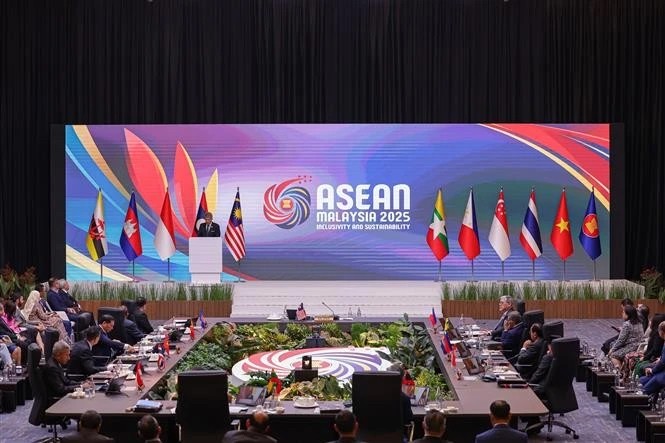Vietnam: Prosperity Through Renovation
| Bilingual Book Series Offers Immersive Journey Through Hanoi and HCMC | |
| A Journey Through Vietnam's Most Enchanting Landscapes |
The Doi Moi (Renovation) policy, launched by the Communist Party of Vietnam in 1986, marked a crucial shift in economic strategy. Faced with stagnation and inefficiencies, the Party embraces reform to modernize the economy, boost efficiency, and integrate with global trade while maintaining socialist principles. These efforts transformed Vietnam from one of the world's poorest nations into a fast-growing economy with improved living standards and infrastructure.
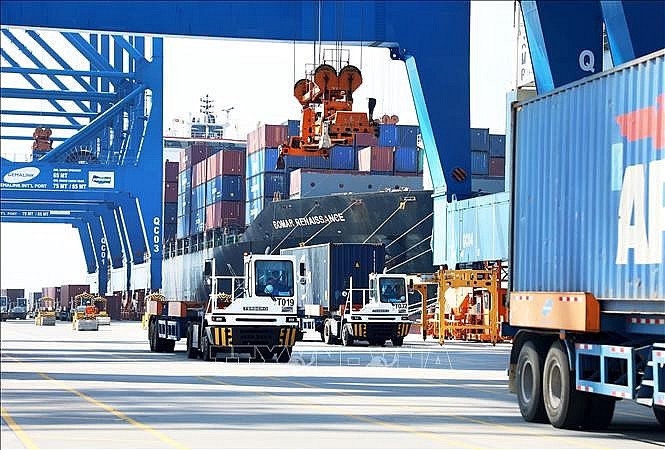 |
| Export activities at the Cai Mep - Thi Vai port cluster, Phu My town, Ba Ria - Vung Tau province. Photo: VN |
Professor G. Devarajan, General Secretary of the All India Forward Bloc (AIFB), expressed confidence that under the current leadership of the Communist Party of Vietnam, General Secretary To Lam and President Luong Cuong, the Doi Moi process will continue to progress, addressing new challenges in the modern globalized world.
According to Professor Devarajan, the leadership must focus on sustaining economic growth, improving social welfare, and ensuring the Party's leadership role in the country's political landscape. He emphasized that one of the key factors behind Vietnam's success during Doi Moi has been the Party's ability to maintain political stability while improving reform.
Evaluating the ongoing reform efforts, Professor Devarajan highlights that structural transformation, modernization, anti-corruption measures, and administrative streamlining are essential for achieving the Party's long-term goals of sustainable development, social equity, and political stability. By curbing corruption, the government ensures that policies and resources effectively reach the people, enhances governance efficiency and ultimately strengthens the Communist Party's leadership and its relationship with the public.
Professor Devarajan welcomed Vietnam's current leadership's strong focus on anti-corruption efforts and the Party's accountability to the people. He noted that the anti-corruption campaign has reinforced public trust in the Party and its ability to deliver on promises of modernization and development. The Party leadership acknowledges that sustained anti-corruption efforts are vital for achieving broader national development, social justice, and political stability. By continuing to fight corruption, the Party ensures that the benefits of its policies are equitably shared among all citizens, particularly those in need, while consolidating its credibility as the nation's leading political force.
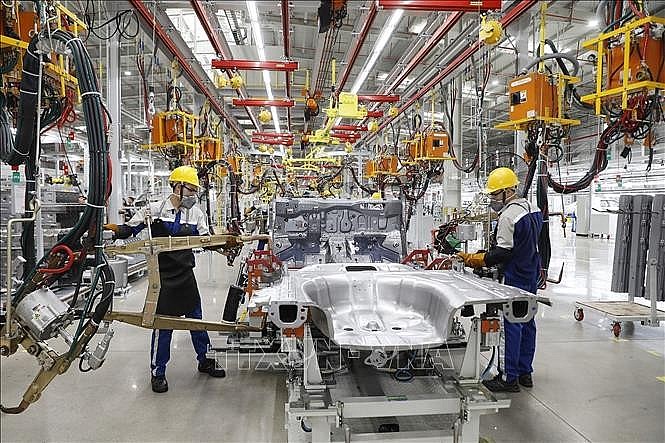 |
| Hyundai Thanh Cong automobile production and assembly line. Photo: VNA |
Regarding Vietnam's aspirations in the new era, Professor Devarajan stated that the country stands at the threshold of a new period of progress, driven by a deep commitment to people-centered policies under its new leadership. This transition marks a significant chapter in Vietnam's continuous development journey. Under the current leadership, Vietnam is poised to achieve new heights, fulfilling the aspirations of its people.
As Vietnam advances, the Communist Party faces both opportunities and challenges in implementing socialist-oriented policies. These policies remain crucial for modernization, economic growth, and social equity. Rapid economic expansion has positioned Vietnam among Southeast Asia's fastest-growing economies, creating opportunities for further growth, global integration, technological progress, and poverty reduction.
Vietnam faces challenges in balancing market reform with socialist ideals, addressing inequality, privatization, geopolitical tensions, and environmental sustainability. However, Professor Devarajan believes that by leveraging its strengths—people-centered policies, ideological commitment, and past lessons—the Communist Party can guide the nation toward progress, ensuring prosperity and social equity. With strategic planning and innovation, Vietnam can overcome obstacles, seize opportunities, and contribute to global peace and justice.
Professor Devarajan reaffirmed that the All India Forward Bloc (AIFB), as a dedicated ally in the global socialist movement, remains united in solidarity with and strongly supports the Communist Party and the people of Vietnam. He expressed confidence that under the Party's leadership, Vietnam will continue to advance successfully, overcome all obstacles, and achieve even greater development and prosperity.
He also expressed admiration for Vietnam's achievements and commended the Communist Party of Vietnam's dedication to revolutionary principles, its people, and its commitment to a better and fairer future. On the occasion of the 95th anniversary of the Party's founding, Professor Devarajan emphasized that Vietnam's ongoing journey will not only elevate the nation but also serve as an inspiring example for socialist movements worldwide, demonstrating that a people-centered development path is not only viable but essential for achieving true social justice.
 | Overseas Sisterhood: Inspirational Story of Vietnamese Women Abroad Along with successful careers, many Vietnamese women carry on their own shoulders the larger mission of spreading positive values to society and the community, bringing ... |
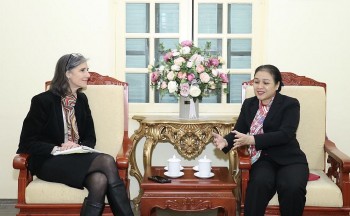 | Vietnam - Inspirational Model at UNDP On December 20, in Hanoi, President of the Viet Nam Union of Friendship Organizations (VUFO) Nguyen Phuong Nga received Ramla Khalidi - Resident Representative of ... |
Recommended
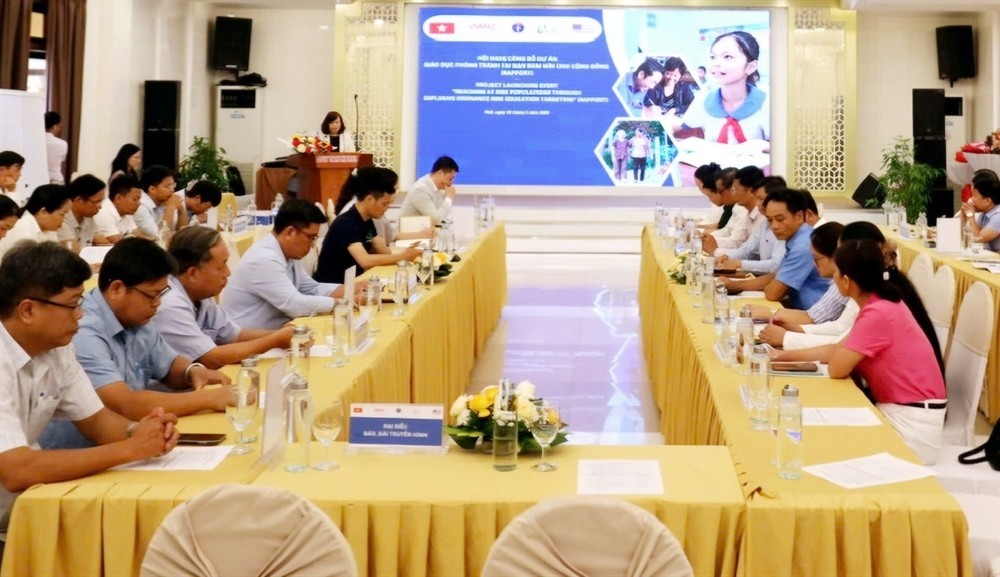 Viet's Home
Viet's Home
Hue City to Raise Awareness on Mine Accident Prevention
 Focus
Focus
Vietnam Leaves Imprints on the World Peacekeeping Map
 Viet's Home
Viet's Home
“Global Vietnamese Singing 2025” - Connecting Hearts Longing for Homeland
 Viet's Home
Viet's Home
Vietnam’s People's Public Security Force Actively Contributes to UN Peacekeeping Operations
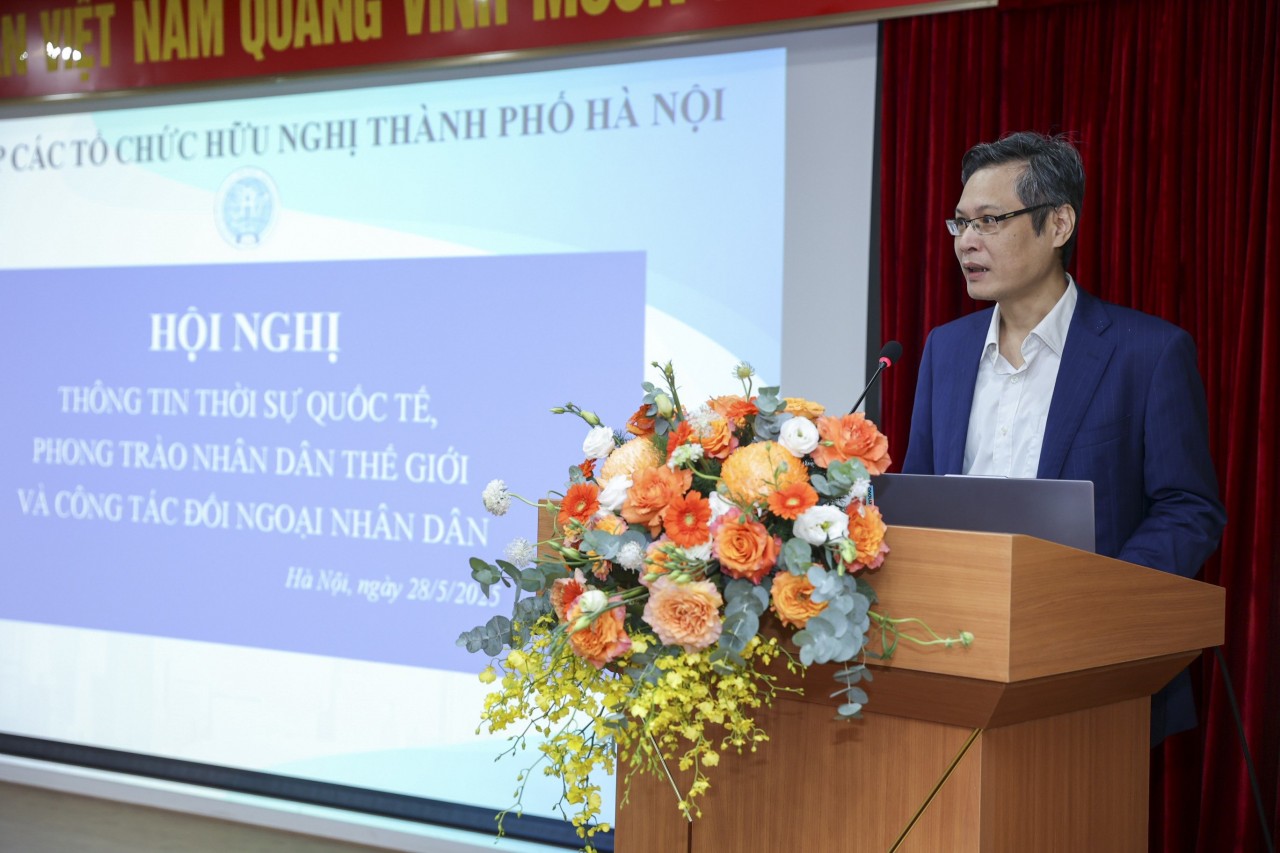 Viet's Home
Viet's Home
HAUFO Enhances Competence of People-to-People Diplomacy Personnel
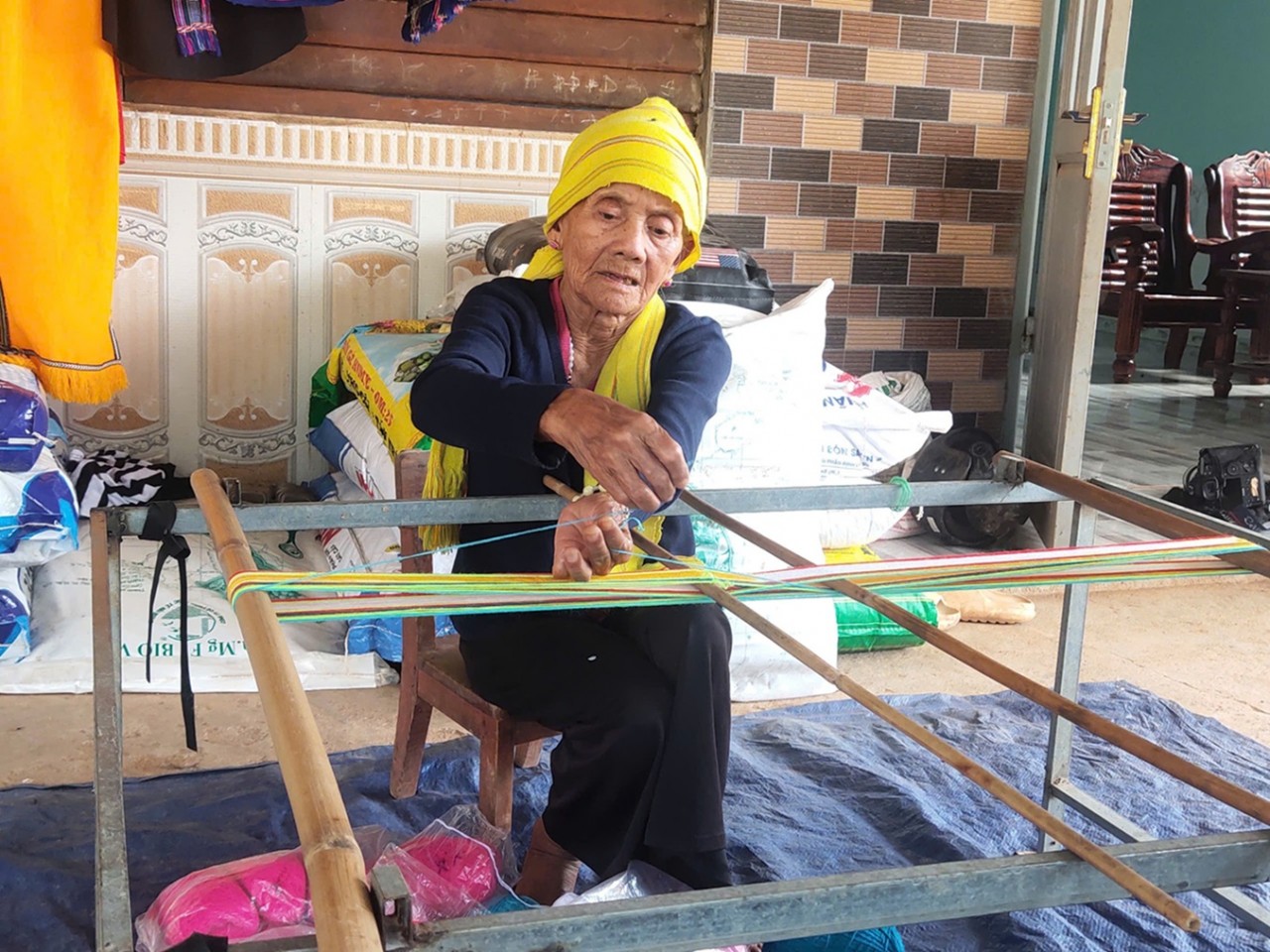 Viet's Home
Viet's Home
Hands that Reserve Da Long Brocade Craft
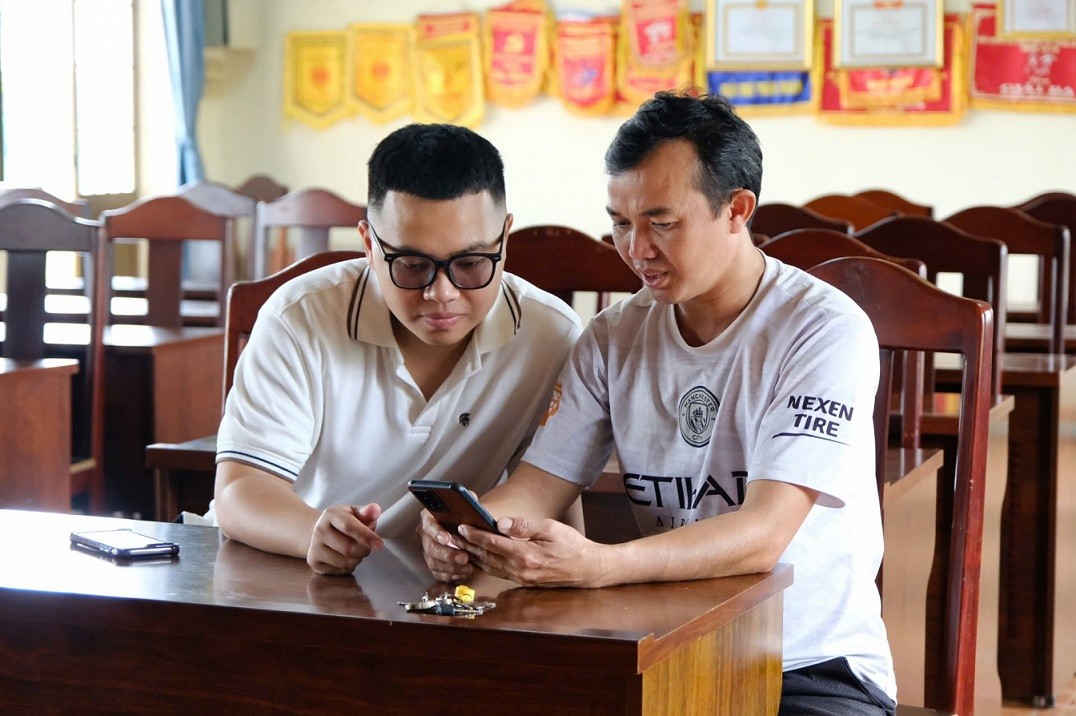 Viet's Home
Viet's Home
Da Rsal – How Digital Transformation Reshape a Poor Commune
 Viet's Home
Viet's Home


